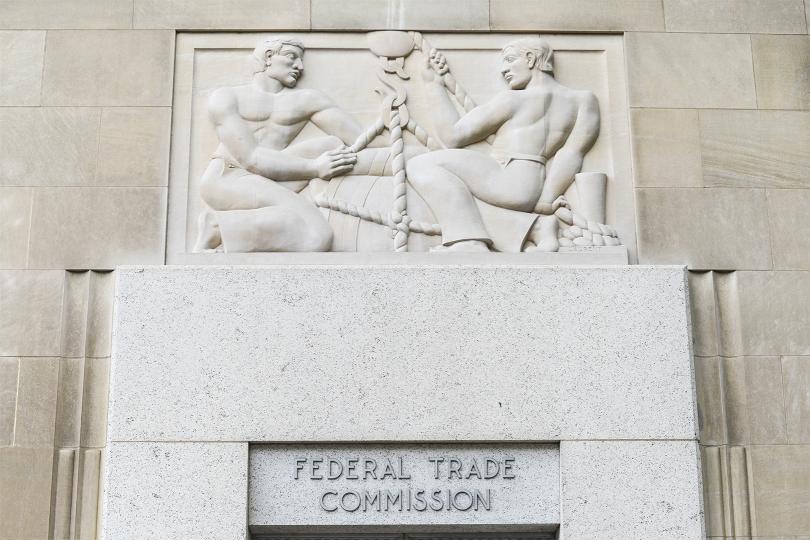
The United States is moving to ban noncompete agreements in labor contracts, and research from Maryland Smith management professor Evan Starr is behind the push.
A comprehensive new proposal from the Federal Trade Commission would block companies from stopping employees who want to leave to work for rivals or start their own competitor. Starr’s research on noncompete agreements helped spur this latest federal push – he and his work are cited more than 60 times in the proposal.
Starr’s extensive research has revealed just how prevalent and crippling noncompete agreements can be – not just for high-tech workers, but even for hairdressers, restaurant staff and other hourly workers. His important findings have been the impetus behind the Biden Administration’s work to curb these agreements.
The FTC estimates a new rule blocking noncompetes could increase wages by almost $300 billion a year in the U.S. economy. In a recent New York Times article on the proposal, Starr said that noncompete agreements lower wages for both workers bound by them and even those who don’t have to sign them, based on his research with fellow Smith management professor Rajshree Agarwal and Smith PhD student Justin Frake. That’s because the agreements make the hiring process more complicated and costly for employers, who right now have to navigate which potential hires are restricted by them.
In his research, Starr found that noncompetes did encourage businesses to invest in more training, but there was little evidence that most employees entered into them voluntarily or were able to bargain over them.
In one study, Starr found that only 10% of workers who signed a noncompete tried to bargain for concessions. And about one-third of workers covered by a noncompete agreement only found out about it after they accepted the job.
Some states have banned noncompetes or stripped them from being enforceable, but workers don’t always know that and are often scared by the threat of lawsuit, Starr has found in his research and recently told Marketplace radio.
“Low-wage workers generally don’t have the wherewithal to finance litigation even for a frivolous noncompete agreement,” he told Marketplace. He said the FTC ban would give workers a lot more leverage.
Starr delves into the details of what the FTC proposal means for businesses, how noncompete clauses work, and how they affect workers, wages and the broader economy in a Q&A with The New Yorker.
The FTC proposal isn’t the first time Starr’s research on labor practices has been used to bolster federal legislation. His paper on nondisclosure agreements helped push through the bipartisan Speak Out Act, passed by Congress and signed into law in December 2022, to limit employers’ use of the tactics to keep sexual harassment victims quiet.
The Biden Administration has been relying on Starr’s research for years to underscore arguments on how noncompete clauses hurt workers. In a roundtable discussion in March 2022, officials outlined steps and rationale for reforms in response to a U.S. Treasury report, “The State of Labor Market Competition.” The work cites and draws from 10 of Starr’s research papers.
On Nov. 14, 2019, Starr gave compelling testimony before the U.S. Senate Small Business Committee on his research findings in a hearing, “Noncompete Agreements and American Workers.” He also testified at a U.S. House of Representatives subcommittee hearing, “Antitrust and Economic Opportunity: Competition in Labor Markets,” on Oct. 29, 2019.
In the past week, Starr has been quoted and his research cited by several top media outlets:
- The Nation – Jan. 18 – “The FTC’s New Rule Against Noncompetes Could Raise Wages by $300 Billion”
- The Wall Street Journal – Jan. 17 – “Why the FTC Says NonCompete Clauses Are Hurting the Economy”
- The New Yorker – Jan. 10 – “What a Ban on Non-compete Agreements Could Mean for American Workers.”
- Marketplace Radio – Jan. 9 – “The FTC’s Proposed Noncompete Ban Could be a Boon for Lower-Wage Workers”
- MarketWatch – Jan. 9 – “FTC Wants to Ban Noncompete Agreements. This Man was Forced to Sign 4 Noncompetes. ‘It Just Doesn’t Feel Right,’ He Says.”
- New York Times – Jan. 5 – “U.S. Moves to Bar Noncompete Agreements in Labor Contracts”
- TechTarget – Jan. 5 – “FTC Proposed Ban on Noncompetes seen as Boldest Possible”
- Business Insider – Jan. 5 – “Ditching Noncompete Clauses Would be a Win for Workers' Rights and Employees in Low-Wage Jobs”
Media Contact
Greg Muraski
Media Relations Manager
301-405-5283
301-892-0973 Mobile
gmuraski@umd.edu
Get Smith Brain Trust Delivered To Your Inbox Every Week
Business moves fast in the 21st century. Stay one step ahead with bite-sized business insights from the Smith School's world-class faculty.